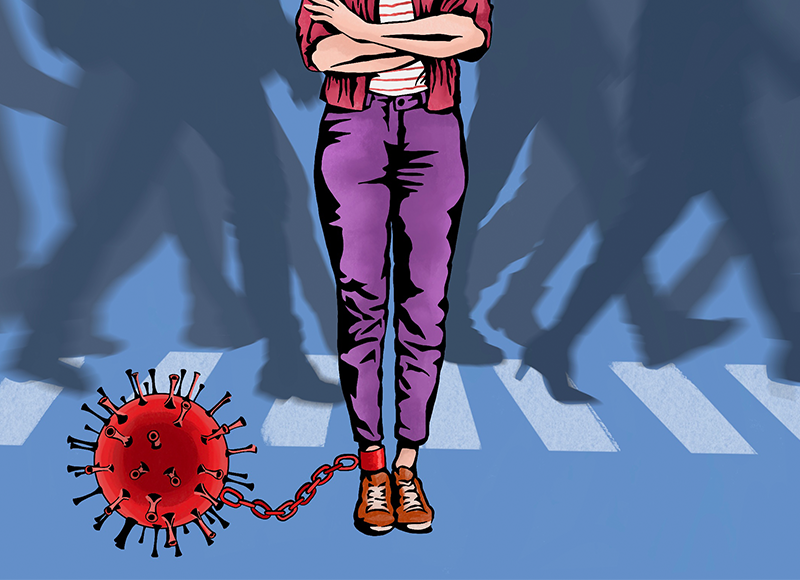Those who were students during the past Covid year will get a 50 per cent reduction on their tuition fees next year. Academics’ contracts will be extended too, and higher education will receive systematic compensation for the sky-high student numbers.
Education ministers Van Engelshoven and Slob announced the plan on 17 February at the presentation of their National Education Programme. The support package will cost more than 8.5 billion euros. Minister van Engelshoven: ‘In nearly every school, every educational institution and every student room, the pandemic brought extra work with it.’
Public transport pass
During the past ‘Covid year’, students took most of their classes and met in their workgroups sitting at their laptops. Some of them got behind with the studies, which is why all students will be getting 50 per cent off their tuition fees for next academic year. They are also being given the right to student funding for longer, and they can use their public transport pass for an extra year. That is on condition that they had the right to at least one month of free public transport between March and December 2020. Between them, the minister expects these gestures to take a lot of the pressure off the students.
The Lower House of Parliament passed a motion earlier this year pushing for students who have fallen behind to be granted a full year without fees. Minister van Engelshoven has opted to give all ‘Covid year’ students an extra six months. That is the average amount of time that students have now lost, she indicated at the press conference.
More student deans and study advisors
To support students psychologically as well, more student deans and study advisors will be appointed. Because just imagine being a student now, said the minister. ‘Waiting for your internship so you can graduate, or sitting in your student room gazing at fellow students you hardly know on your computer screen.’
They can finish their important research, and go on teaching
Minister Van Engelshoven on support for young researchers
On top of the more than 8,5 billion for the national programme, the cabinet is going to invest a sum of 645 million euros annually to compensate universities, including applied sciences universities, for the increase in student numbers. A small proportion of the funding will go to vocational education, but how much is not known. Higher education institutions certainly expanded dramatically this year. Since a year of backpacking or working was not an option during the Covid year, young people flocked to higher education in large numbers.
Academics
The Covid crisis has brought uncertainty with it for a lot of academics too. Some of them have a temporary contract but cannot finish their research on schedule. Laboratories are closed and fieldwork has been suspended.
There is good news for 20,000 of these young researchers: the cabinet has reserved 162 million euros for extending their contracts. ‘They can finish their important research and go on teaching,’ says the minister.
Desperately needed
With the extra spending, the cabinet wants to enable universities to take on additional staff and teachers to reduce the work pressure. ‘And that was desperately needed,’ said minister Van Engelshoven. This is structural funding, she emphasized at the press conference, and it will continue to be paid out annually after the formation of the new cabinet.
In nearly every school, every educational institution and every student room, the pandemic has brought extra work with it
Minister Van Engelshoven
But what about the billion that higher education was already asking for, a sharp journalist from the financial daily the FD wanted to know. Isn’t there a risk that when a new government is formed, the cabinet will say that that investment is not as necessary now?
That is not the idea, says the minister. ‘The reasoning behind that extra billion is different,’ she says. That structural investment will still be ‘necessary’, she says, on top of the current 645 million euros. ‘But I’m saying that now with my D66 hat on.’

 A support package worth 8.5 billion euros for education. Illustration: Shutterstock.
A support package worth 8.5 billion euros for education. Illustration: Shutterstock. 

